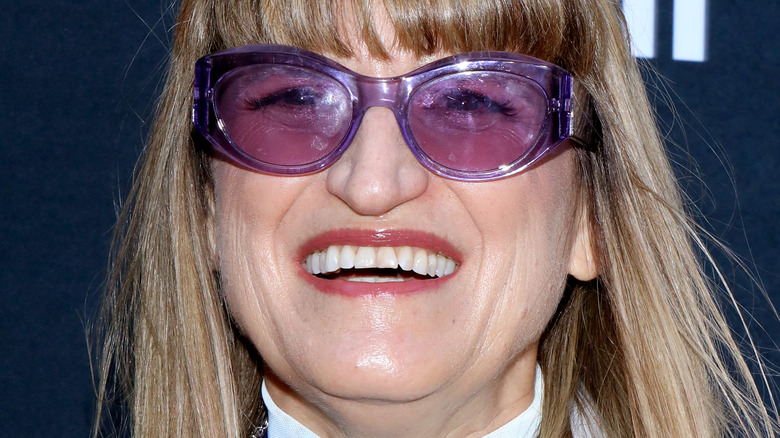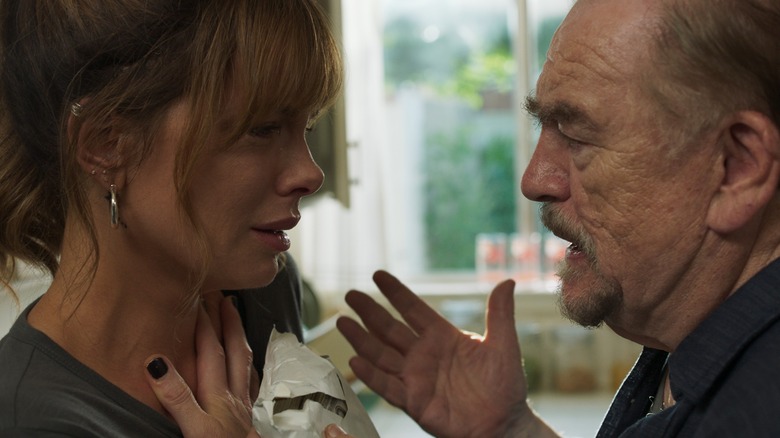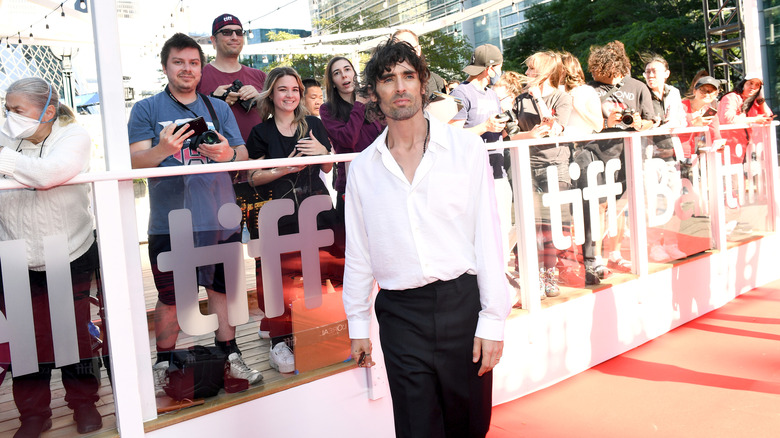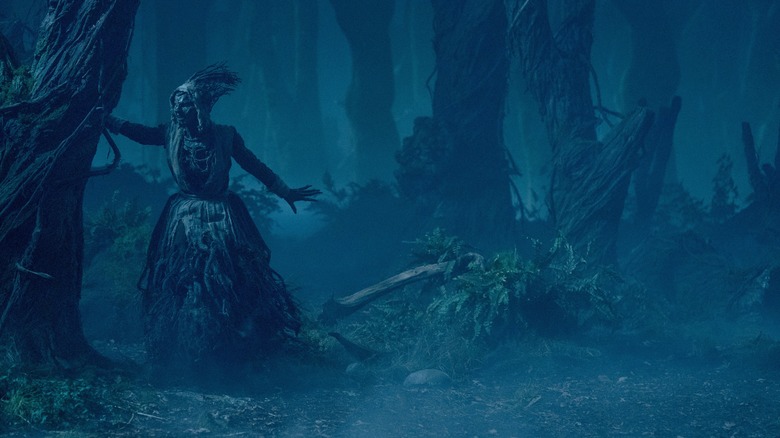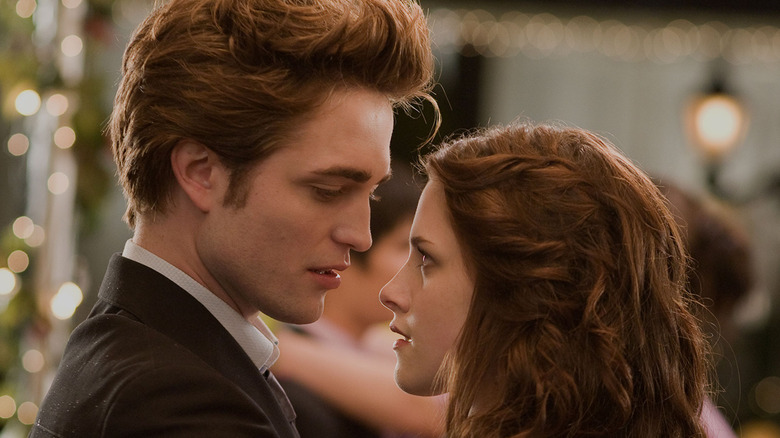Prisoner's Daughter Director Catherine Hardwicke Discusses Making Her New Emotional Drama Film - Exclusive Interview
Ever since she emerged in 2003 with her searing directorial debut, "Thirteen," filmmaker Catherine Hardwicke has specialized in dramas filled with raw emotion, candid parent-child dynamics, and the ongoing roller coaster ride that is the turbulent life of teens. All these aspects have found their way into many of her films, from "Lords of Dogtown" to "Miss Bala," with the director's biggest commercial breakthrough, 2008's "Twilight," launching a global film franchise and pop culture phenomenon.
Hardwicke's new drama, "Prisoner's Daughter," returns to her favorite themes, with characters representing three generations of a severely fractured family. Max (Brian Cox) is a one-time rising boxer who became a mob enforcer and landed in prison. Maxine (Kate Beckinsale) is a former Las Vegas dancer who now works behind the scenes on the Strip, cleaning towels and serving food while also raising her son Ezra (Christopher Convery) and keeping her drug-addict ex (Tyson Ritter) at bay.
When Max is diagnosed with terminal cancer and released from prison to live out his last months, he turns to Maxine, whom he hasn't spoken with in 12 years. Max sees his release as a last chance to make things right with her and have a relationship with his grandson, but Maxine isn't buying it — at least, not at first. We sat down with Hardwicke for a deep dive on the film and its message.
Hardwicke related to Prisoner's Daughter on a personal level
What drew you to this story, and were there themes in the material that maybe connected to some of your previous work?
Immediately, the complicated father-daughter dynamics were very interesting. My dad was not in prison, but he had his own complicated things, so seeing these two try to work out their past — this man that has had an incredible, tough life and violent life, how has he changed? How have the 12 years in prison changed him? He's been in AA, and how has this changed him? How can you bring this new life in a way back to his daughter and his family?
I thought that was fascinating, and yes, a lot of members of my family were in AA, and I had a lot of ex-boyfriends with addiction problems, similar to her ex-husband — the tendency to let the animal brain lash out and become violent before the other brain can take control. These struggles with both men and with her son now being attacked and bullied — is he going to be violent too? How do we unlock this multi-generational trauma and cycle of violence? How do we change? That fascinated me.
What qualities made Kate Beckinsale and Brian Cox right for these roles?
Did you ever see a movie called "Farming"? It was an English movie, and a friend of mine that I worked with at Sundance, Adewale Akinnuoye-Agbaje, directed it. It was his life story, and Kate played his foster mom. He was an African foster kid in England, and a lot of women would make money from the government taking foster kids. She was fantastic in that movie, unlike anything you've ever seen Kate do. When I saw it, I'm like, "Wow, Kate is really a badass actor and can do so many other things besides her cool action movies." I thought she was great, and we hadn't seen her do something like this.
Then Brian ... Okay, of course, "Succession," who isn't enthralled by him? We knew he had that toughness and the intelligence, and then to see him go to a different side where he's trying to tenderly and gently make amends with his daughter — that would be so fascinating to see that change. Also, it's interesting, because we don't see him on "Succession" being physically violent. We see him being verbally abusive, but in this one, we see his physicality, too.
If you or anyone you know needs help with addiction issues, help is available. Visit the Substance Abuse and Mental Health Services Administration website or contact SAMHSA's National Helpline at 1-800-662-HELP (4357).
If you or someone you know is dealing with domestic abuse, you can call the National Domestic Violence Hotline at 1−800−799−7233. You can also find more information, resources, and support at their website.
Why Hardwicke cast a rock star in a crucial role
Tyson Ritter, who plays Kate's ex, is also the singer for the All-American Rejects. Are you surprised when a musician actually can act and cross between those two worlds?
Being a musician is very emotional. It's emotion — they're up there on the stage and pouring their heart out. Even as they channel and write their songs, it's their emotions expressed in a beautiful, artistic way — especially Tyson. Three songs that Tyson wrote are in the movie, and he wrote the final song, "The Shotgun Clown," that you hear. It's my second movie with him; we did "Miss You Already" in London. He's such a creative person. It just flows. He's writing a song every day; he's painting every day; he has an irrepressible spirit.
I feel like he understood this character in a way because so many of his bandmates, or people he's been around, have struggled with these problems. He wanted to do justice to this person. It was important to he and I both that he said that line in the movie where she says, "You're an addict." He says, "Do you think I want to be this way?" It's not a choice by all my addict friends and family. They don't want to be that way. It's this burden, and that was important that somebody understood that.
There are some very intense, raw emotional moments in this movie between Max and Maxine, or between Maxine and Ezra. You were doing this kind of stuff at the start with "Thirteen." Has your approach to these moments changed?
After I did "Thirteen," I wanted to keep making more movies like that. But as you know, these movies are not easy to get financed; they don't have the big IP, they're not superheroes, and there are no big action sequences, so they're hard to get done. But I tried on "Thirteen" and this one to find the right house that actually felt right and make sure that all the details were right, and right for the character. Then [I wanted to] create that atmosphere where it's just me and maybe the cameraman and the sound person in the room with the actors so they could live it, and feel it as emotionally, and raw, and intimate as possible. It's the same approach I took on "Thirteen."
Shooting the movie in the Las Vegas nobody sees
Let's talk about filming in Las Vegas. Everybody just thinks Vegas is the Strip, but you filmed off the Strip. We see people living normal lives, going to school — not the Vegas image. The city is almost a character in the film.
That was so interesting, because I was specifically looking for [places] where you could see the backside of Vegas from your house. You could see the towers from their house — when you see the drone shot rise up, there's Vegas right there from that house. I love the boxing gym; you could see the backside of a billboard hanging over the boxing gym. It's like you're almost at the glamour.
[Kate's character] did make it to the stage at Caesar's for one moment, but then you age out, the dancers age out. After she had the kid and all that, she couldn't go back to that. You even age out of the prime waitressing jobs in Vegas. There's all these layers of being close to the glitter, but then you end up working in the laundry where they wash all the towels.
I was so fascinated by every bit of the underside [of the city]. It was so interesting to me. You're in this crazy desert. It was 115 degrees when we filmed there ... It did become a character. The house we had was a kind of a '50s modern, wannabe Palm Springs house. Most of those houses have been renovated with the new wave of people, but that one, I literally knocked on 50 doors and found that house. That still had the age where it could have been there when Max was there, because it was a family house. Even finding these elements in Vegas and learning about the neighborhoods and the people there was all a mind-blowing experience.
Working with Guillermo del Toro on his 'creepy, crazy' new series
Next for you is an episode of "Guillermo del Toro's Cabinet of Curiosities." You've adapted and directed a story by H.P. Lovecraft ("The Dreams in the Witch House"). What can you tell us about the episode and working with Guillermo on this?
That was a dream come true, because I love Guillermo, and artistically, he's amazing. To be chosen for that [was] a miracle. The fact is, I came from this movie, and one day later, I went to Toronto to shoot that. The budgets were quite different; for example, on Guillermo's show, we got to build incredible sets that have crazy detail. It's set in 1932, Boston, in a witch house, so the production designer Tamara [Deverell] and I were looking at all these creepy, crazy things and how to create strange feelings. Every interesting idea we had, we'd show it to Guillermo, and he'd be like, "Yeah. Okay, lean into that, let's go with that." He really encouraged that.
He's obviously a master at creature design, so getting to work with him on that — we have a very outrageous tree root witch, and then we have a rat with a human face that's from the Lovecraft novel. How do you bring them to life? With costumes and prosthetics. He doesn't like to use CGI, which is much more fun, because you have the real creatures on set. It's very creepy, very cool.
Rupert Grint from "Harry Potter" is the star, and we have Ismael Cruz Córdova — I worked with him in "Miss Bala," and he's also in the new "Lord of the Rings" series ["The Rings of Power"]. Those two are incredible. They play best friend nerds who are researching the bridge to the other side. It's a very beautiful, creepy, and scary story.
Why Catherine Hardwicke walked away from Twilight
We're coming up on 15 years since you did "Twilight." You directed the first one and then stepped away. Was it the right choice for you? How do you feel about it now, looking back?
When I got to do "Twilight," I got to do it like an indie film, because no one had any expectations. Let's be honest — they would have never hired a female director if they thought it was going to be a blockbuster. They didn't micromanage me at all. I got to cast actors who were unknown at that time. Everyone at Summit was very cool and they encouraged me. They weren't on my back and giving me a million notes.
After that, the expectations went through the roof, so there was a zillion notes and committees and everything. I don't think I would have worked well like that. I did do better just creating the first world. The first book Stephanie [Meyer] wrote was very odd and unique and original, and that's the one I responded to the most, so I can't be sorry. I think I did the right thing.
"Prisoner's Daughter" recently had its premiere at the Toronto International Film Festival.
This interview was edited for clarity.
